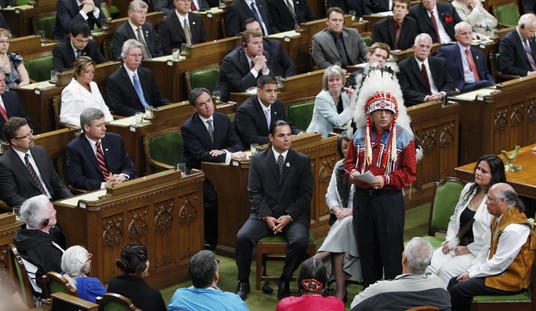Last week, the Seattle Times published an op-ed by Washington state native and Cornell University doctoral student Hajer al-Faham titled: “Why I Stopped Wearing the Hijab.” Al-Faham was making no statement of a loss of faith in Islam, or of an awakening feminist consciousness. Rather, as she writes:
I felt compelled to stop wearing my hijab out of concern for my safety.
Who has endangered her? Why, Donald Trump, of course. And other GOP “Islamophobic” presidential candidates:
In the midst of the 2016 U.S. presidential campaigns, I have experienced an unprecedented degree of anti-Muslim hostility. The statements made by Donald Trump, in particular, encouraging the shutdown of mosques and the development of a database to track Muslim Americans have direct consequences for people like me.
Al-Faham suggests that Muslims in post-9/11 America live an increasingly precarious existence marked by harassment and discrimination, such that many Muslims conceal their Muslim identity.
She further suggests that the 2016 GOP campaign is somehow even worse in this regard than 9/11:
Even when the challenges of being Muslim and Arab in the United States grew after 9/11, I did not succumb to the pressure to try to pass as non-Muslim and non-Arab.
Who exactly is putting such pressure on her, or any other Muslim? She does not offer examples, or empirical evidence. Nonetheless:
The environment that I and many other Muslims navigate has become increasingly perilous, to the extent that I and other Muslim women have to choose between our safety and our freedom of religion.
And Al-Faham claims that darker-skinned Muslims have it even worse:
While I, setting the hijab aside, am able to pass as non-Muslim or ambiguously ethnic because of my light skin, my father, sisters and others in my community cannot. Their appearance marks them as people of color and targets for violence and discrimination.
If Hajer Al-Faham was really harassed for wearing the hijab, that is a shame. There is no excuse for that kind of behavior. But her fantasy Bull Connor America just isn’t true. Hate crime statistics prove her wrong. And women wearing hijabs are a common sight in American cities now. As I travel, which is quite frequently, and when I am at home, I see women wearing hijabs pretty much every day: in airports, on the streets, in shops, anywhere. No one seems to be bothering them, and they don’t seem to be moving about with the caution and fear that one might expect from people who routinely suffer harassment.
Maybe all the creeps and louts fixate on Hajer Al-Faham in particular. But she is complaining about Republicans: are there really that many racist, bigoted “Islamophobes” at progressive Cornell University? Or in her hometown, the Leftist bastion of Everett, Washington? There are numerous reasons to be skeptical of her claim.
In reality, the evidence shows that a discussion of harassment and concern for one’s safety regarding the hijab needs to focus on what happens to Muslim women who don’t wear it.
Should Aqsa Parvez, whose Muslim father choked her to death with her hijab after she refused to wear it, have just worn the hijab out of concern for her safety?
Then there is Amina Muse Ali, a Christian woman in Somalia whom Muslims murdered because she wasn’t wearing a hijab; and the 40 women who were murdered in Iraq in 2007 for not wearing the hijab.
And Alya Al-Safar, whose Muslim cousin threatened to kill her and harm her family because she stopped wearing the hijab in Britain; and Amira Osman Hamid, who faces whipping in Sudan for refusing to wear the hijab; and an Egyptian girl, also named Amira, who committed suicide after being brutalized for her family for refusing to wear the hijab.
Both Muslim and non-Muslim teachers at the Islamic College of South Australia were told that they had to wear the hijab or be fired. Police shot women in Chechnya with paintballs because they weren’t wearing hijab; other women in Chechnya were threatened by men with automatic rifles for not wearing hijab.
Elementary school teachers in Tunisia were threatened with death for not wearing hijab. Syrian schoolgirls who were forbidden to go to school unless they wore hijab. Hamas has forced Gazan women to wear hijab.
Brave women in Iran protested against the regime by daring to take off their legally required hijab. Muslim thugs threatened to murder women in London if they didn’t wear hijab. An anonymous young Muslim woman secretly removes her hijab once leaving her home; she started living a double life in fear of her own parents.
Who is speaking against the threats to their safety? Women who don’t wear hijab in Muslim countries are far more likely to be victims of violence than hijabis in the West. Who speaks for them?










Join the conversation as a VIP Member